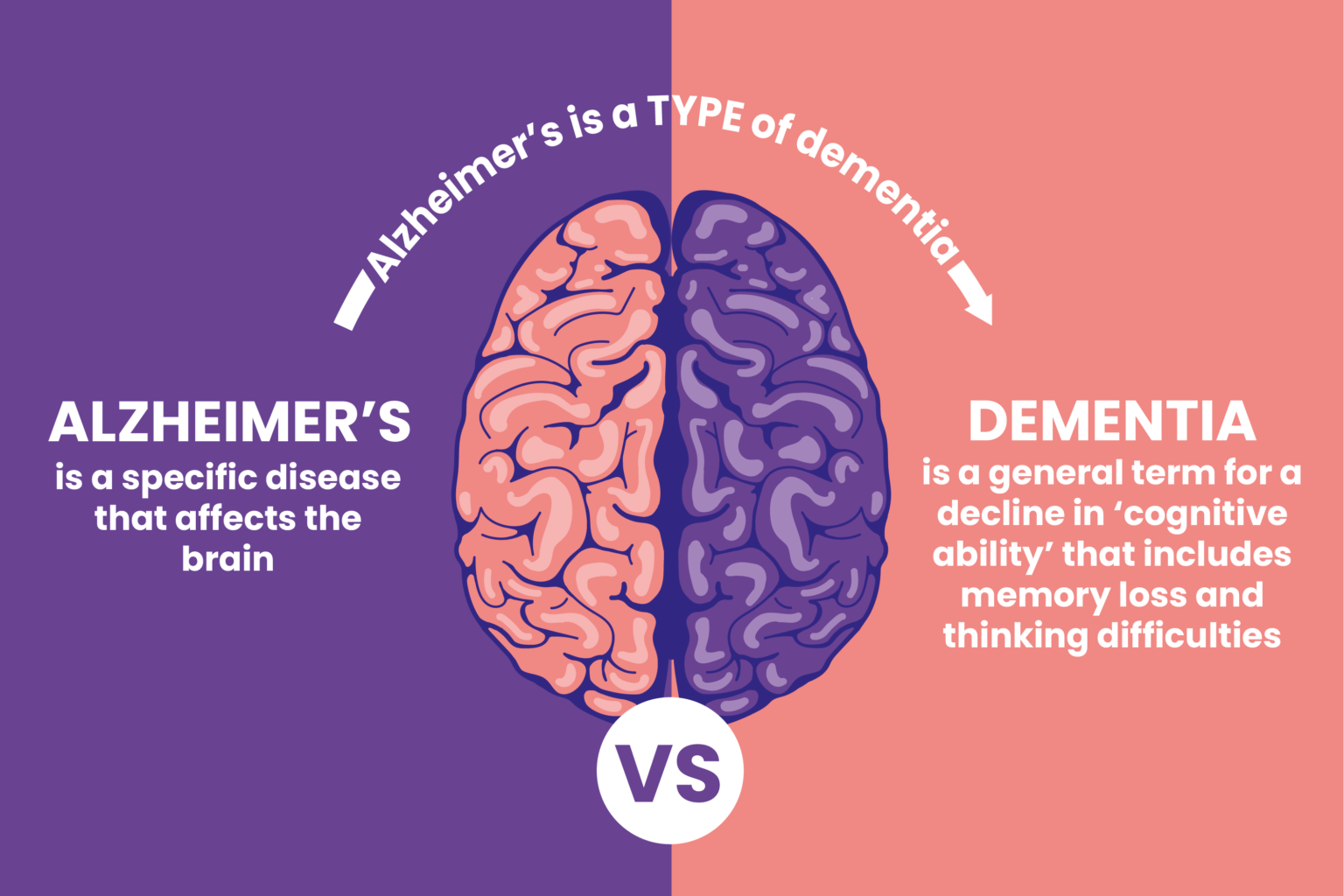Alzheimer’s Myth Buster: What You Really Need to Know
Alzheimer’s disease carries a lot of scary stories and misconceptions—many of which make people anxious, delay diagnosis or treatment, or even create stigma. Knowing what’s true and what isn’t can help you, loved ones, or anyone around you make better choices. Let’s look at some of the most common myths and the real truth behind them.
Myth 1: Memory loss is just a normal part of aging
Truth: Aging does bring small slips, such as forgetting names or misplacing things. But Alzheimer’s isn’t just “getting older.” It involves progressive decline in memory and thinking that affects daily life: forgetting well-known routes, struggling with basic tasks, or unable to remember recent events.
Image courtesy of Age Space
Myth 2: Alzheimer’s and dementia are the same thing
Truth: Dementia is a broad term for conditions that cause a decline in cognitive function (memory, reasoning, behavior) severe enough to interfere with daily life. Alzheimer’s is the most common cause of dementia, but not all dementia is Alzheimer’s. Other types include vascular dementia, Lewy body dementia, frontotemporal dementia, and more.
Myth 3: Alzheimer’s only affects older people
Truth: Most Alzheimer’s cases are in people aged 65 and older, but younger-onset Alzheimer’s exists: people in their 30s, 40s, or 50s can develop it. These younger cases are less common, but real and often more challenging diagnostically and socially.
Myth 4: Alzheimer’s isn’t fatal
Truth: Alzheimer’s disease is progressive and eventually interferes with vital bodily functions. It is considered a fatal disease, though people often die of related complications (like infections, pneumonia) rather than the Alzheimer’s plaques/tangles themselves.
Image courtesy of Research Gate
Myth 5: If Alzheimer’s is genetic, you will definitely get it
Truth: Genetics can increase risk as certain genes are associated with Alzheimer’s, but having a risk gene doesn’t guarantee you’ll develop the disease. Furthermore, many cases arise without strong genetic links. Lifestyle, other health conditions, and environment also play big roles.
Myth 6: There is no hope—nothing can be done
Truth: While Alzheimer’s doesn’t have a cure yet, there still are treatments that can slow progression or help with symptoms. Plus, many lifestyle and non-medical interventions (diet, exercise, cognitive activity, social interaction) show evidence of delaying onset or reducing symptom severity. Early diagnosis helps with planning and maximizing quality of life.
Myth 7: Supplements, a single food, or a magic portion can prevent or cure Alzheimer’s
Truth: No supplement or a single “superfood” has been proven to prevent or cure Alzheimer’s. Some may offer general benefits (e.g. for heart health) but Alzheimer’s is complex—many interlinked factors matter. Reliable prevention comes from healthy aging habits, medical care, and early detection.
Why Busting These Myths Matter
When myths persist, people may:
Ignore early warning signs of Alzheimer’s, delaying diagnosis and treatment
Feel shame or fear instead of seeking help
Try unproven cures which can waste time, money, or even cause harm
Give up too soon on lifestyle steps that do help
Being informed isn’t just power—it can directly improve well-being, access to care, and quality of life. Alzheimer’s is serious, but it’s not hopeless. Knowing what’s true helps recognize symptoms early, separate myth from fact in order to make informed decisions, and bring compassion and understanding for those living with the disease.

